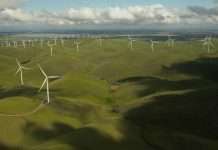The Council and the European Parliament have made a significant step forward by reaching a provisional agreement on the Net-Zero Industry Act (NZIA).
The NZIA is designed to fortify Europe’s manufacturing ecosystem for net-zero technology products, leveraging the single market’s strength to assert Europe’s leadership in industrial green technologies. This regulation is poised to enhance the industrial deployment of essential net-zero technologies to meet the EU’s ambitious climate goals.
Jo Brouns, the Flemish Minister for Economy, Innovation, Work, Social Economy, and Agriculture, lauded the NZIA as a crucial stride towards supporting the industry’s transition to cleaner technologies. Brouns emphasised the act’s role in crafting the necessary ecosystem to propel the manufacture of clean technologies forward, positioning Europe at the forefront of the global clean technology sector and driving the creation of a competitive, green, and job-rich industrial base.
The NZIA aims to facilitate the investment in green technologies by streamlining permit-granting procedures and championing strategic projects. It seeks to improve market access for strategic technology products, upgrade the skills of the European workforce in these sectors through the inception of net-zero industry academies, and establish a platform to coordinate EU actions in this domain. Moreover, the act introduces regulatory sandboxes to foster innovation by providing a conducive environment for developing, testing, and validating innovative technologies.
The progression towards the NZIA’s goals will be gauged by two indicative benchmarks: achieving 40% of the production needed to fulfill the EU’s requirements in strategic technology products and tracking their global production growth in areas like solar photovoltaic panels, wind turbines, batteries, and heat pumps. Additionally, it sets an ambitious target for CO2 carbon capture and storage, aiming for an annual injection capacity of at least 50 million tonnes by 2030.
Key elements of the agreement include streamlined rules for construction permit procedures, the creation of net-zero industrial valleys to foster regional reindustrialisation, and clearer criteria for public procurement and auctioning. The regulation ensures simplified and certain conditions for investors and promoters of net-zero technology manufacturing projects, with strategic projects receiving fast-track permit procedures and financial guidance.
The NZIA also acknowledges member states’ autonomy in choosing their energy sources, stipulating that they are not compelled to designate projects related to unaccepted technologies as strategic. Moreover, it sets expedited permit-granting processes, encourages the development of net-zero acceleration valleys to bolster EU manufacturing attractiveness, and outlines transparent, implementable, and harmonised procurement rules to diversify the EU’s strategic technology supply.
Public procurement rules under the NZIA are crafted to ensure environmental sustainability is a minimum mandatory requirement, with resilience criteria applied in cases of excessive third-country dependence. Additionally, the act facilitates auctions for renewable energy deployment, allowing member states to incorporate non-price-related criteria to foster environmental sustainability and innovation.
This provisional agreement, pending formal adoption by both institutions, is a cornerstone of the Green Deal Industrial Plan, alongside the Critical Raw Materials Act and electricity market reform, to enhance the competitiveness of Europe’s net-zero industry and accelerate the transition to climate neutrality.
Keep up with all the latest FinTech news here.
Copyright © 2024 FinTech Global











